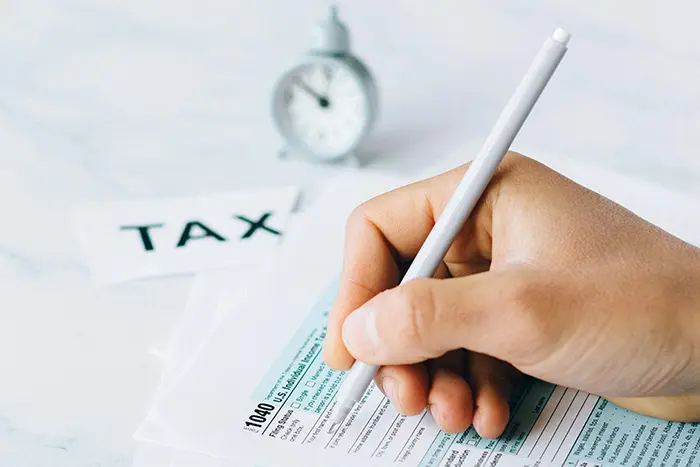
Running a small business in Broward County means juggling Florida-specific rules, local filings, and federal tax planning—all while keeping your books clean and current. The good news: Florida’s tax environment can be very friendly if you know where to look for savings. This guide breaks down practical deductions, local deadlines, and bookkeeping strategies tailored for Broward entrepreneurs so you can keep more of what you earn and stay compliant year-round.
Broward Business Tax Deductions: Florida Guide
Florida doesn’t tax personal income, so most Broward sole proprietors and LLCs taxed as pass-throughs see their biggest savings at the federal level. Start with the basics: ordinary and necessary expenses like advertising, software, professional fees, insurance, rent, and utilities. Don’t forget startup and organizational costs (often up to $5,000 each in the first year if you qualify), the home office deduction when your space is used regularly and exclusively, and proper vehicle expense tracking using either actual costs or the IRS standard mileage method.
Equipment and technology purchases can unlock accelerated cost recovery. Section 179 can let you expense qualifying assets up to the annual limit, while bonus depreciation—currently phasing down—still delivers sizable write-offs for many 2024 purchases. If you’re a pass-through entity, the Qualified Business Income (QBI) deduction may reduce your federal tax by up to 20% of eligible profits (subject to thresholds and limits), a valuable benefit currently scheduled to sunset after 2025 unless extended by Congress.
C corporations operating in Florida start with federal taxable income and then apply Florida’s corporate income tax (generally 5.5%). Florida conformity can change treatment of certain items (such as bonus depreciation) in specific years, so planning ahead matters. Beyond income taxes, remember federal deductions for state and local business taxes you actually pay, like real estate taxes on business property and tangible personal property taxes; and leverage Florida sales tax exemptions, such as the Annual Resale Certificate and exemptions for certain manufacturing or R&D equipment.
Local Tax Deadlines and Strategies for Broward SMBs
Sales and use tax returns in Florida are typically filed monthly. Returns are due on the 1st of the month following the reporting period and are considered late after the 20th; many small businesses file and pay electronically with the Florida Department of Revenue. If you buy taxable items for your business without being charged Florida sales tax (for example, some online purchases), you may owe use tax—build a monthly process to catch and remit it.
Reemployment tax (Florida’s state unemployment tax) is filed quarterly, generally due by the end of the month following the quarter (April 30, July 31, October 31, and January 31). Florida annual reports for corporations and LLCs are due to Sunbiz by May 1 each year—miss it and an automatic $400 state late fee applies. Federal dates still matter: S corporations and partnerships typically file by March 15, C corporations and individuals by April 15, with estimated tax schedules throughout the year.
Locally, Broward County and the City of Hollywood require Local Business Tax Receipts (LBTR) renewed by September 30 each year; penalties begin October 1 and grow the longer you wait. For property-related filings, Tangible Personal Property (TPP) tax returns (Form DR-405) are generally due April 1 with the Broward County Property Appraiser; a $25,000 TPP exemption per account can apply, but first-time filers must submit a return to receive it. Mark these Broward-specific dates on your compliance calendar and set automated reminders so nothing slips through the cracks.
Sales Tax, Commercial Rent, and Broward Surtax Essentials
Florida’s general state sales tax rate is 6%, and Broward adds a 1% discretionary sales surtax. The discretionary surtax often applies to the first $5,000 of a single item of tangible personal property, while services are generally not taxed unless specifically enumerated. Disclose your valid Florida Annual Resale Certificate to suppliers for purchases intended for resale, and keep exemption certificates organized to substantiate non-taxed transactions.
If you lease commercial space in Broward County, be aware of Florida’s “business rent tax.” As of June 1, 2024, the state sales tax on commercial rent dropped to 2.0%, and Broward’s 1% discretionary surtax still applies. Landlords typically collect and remit this tax, but tenants should verify correct application on base rent and common area maintenance charges, and ensure invoices reflect the reduced rate.
Sales and use tax risk often arises from shipping, drop shipments, and marketplace sales. Florida generally taxes delivery charges if they’re part of the sale of taxable goods, and out-of-state vendors with Florida economic nexus must collect Florida tax. Broward-based sellers delivering into other Florida counties must track the customer’s county surtax. Build a taxability and sourcing checklist into your invoicing workflow, and reconcile collected tax to filed returns monthly.
Bookkeeping Playbook for Broward Entrepreneurs
Solid bookkeeping turns deductions from “maybe” to “maximize.” Use separate business bank and credit accounts, import transactions into your accounting software, and reconcile monthly so your books match your statements. Tag expenses by category (cost of goods, advertising, dues and subscriptions, insurance, rent, utilities, payroll, contractor payments) to make tax prep fast and audit-ready.
Create a fixed-asset ledger with purchase dates, costs, and placed-in-service dates to support Section 179 and bonus depreciation decisions at year-end. For retailers and e-commerce, maintain accurate inventory using periodic counts and consistent costing methods; tie inventory to sales tax collections so your gross receipts and tax filings tell the same story. Keep digital copies of large purchase invoices, lease agreements, and insurance policies.
Mileage logs, home office measurements, and accountable plans for reimbursements protect big deductions that often draw scrutiny. For contractors you pay $600 or more, collect W-9s up front and set reminders to issue Forms 1099-NEC by January 31. If you claim the TPP exemption in Broward, keep an updated asset list to ensure you stay under the threshold—or file on time if you exceed it.
Avoiding Pitfalls: Audit-Ready Habits for Florida SMBs
Common mistakes cost real money: commingling funds, skipping use tax, over-claiming vehicle expenses without a mileage log, or missing Sunbiz and LBTR deadlines. S corporation owners should document reasonable compensation to reduce payroll tax risk while still benefiting from pass-through treatment. If you’re using contractors, file 1099s on time—Florida doesn’t add a separate state filing, but federal penalties can add up.
Plan purchases with intention. Consider timing equipment acquisitions to optimize Section 179 and bonus depreciation, and plan inventory buys around cash flow and potential sales tax holidays. For pass-throughs, monitor taxable income throughout the year to manage the QBI deduction and quarterly estimates, and revisit retirement plan options (SEP IRA or Solo 401(k)) before year-end to boost deductions and build wealth.
Finally, mind your footprint. Florida has been enforcing economic nexus for remote sellers into the state, and marketplace rules can shift collection responsibilities. Broward businesses selling across county lines must apply correct surtaxes based on delivery location. A quarterly checkup of registrations, certificates, and filing frequencies keeps you compliant as your business evolves.
Tax rules shift, local deadlines sneak up, and the best deductions require clean books and proactive planning—especially in Broward County. If you want a local partner who understands Florida sales tax, commercial rent tax, TPP filings, Sunbiz deadlines, and federal deduction strategy, we’re here to help. Contact POS Taxes in Hollywood, FL today for personalized tax and bookkeeping support that keeps you compliant and maximizes your savings.


